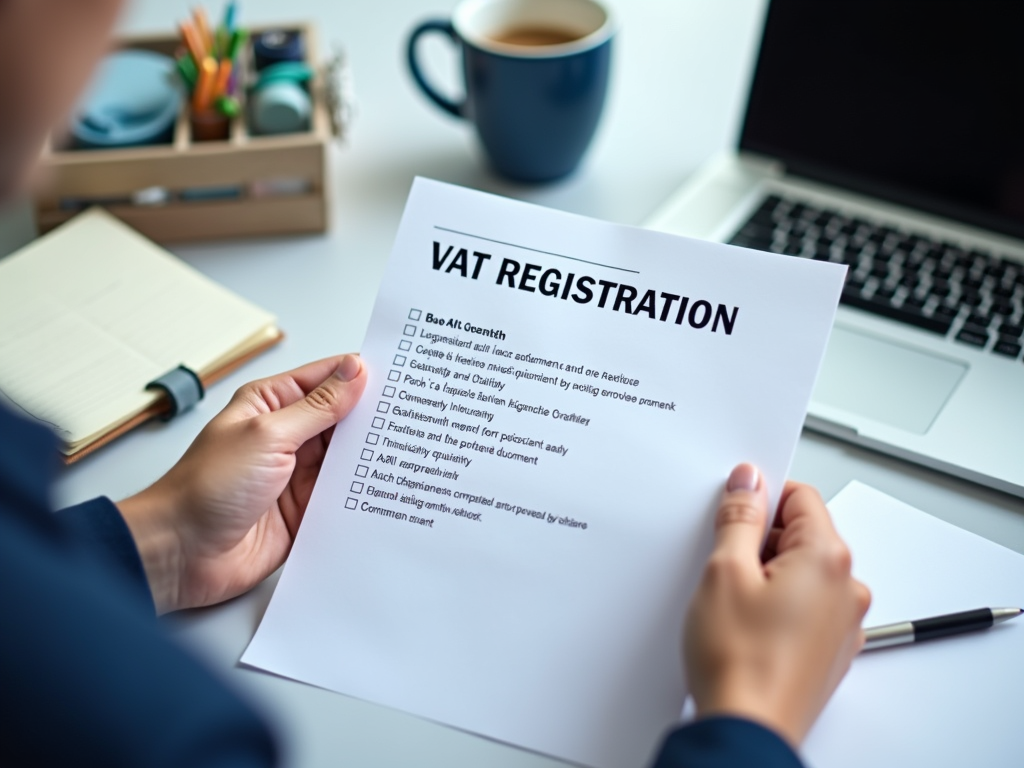The process of Value Added Tax (VAT) registration in the UAE can seem daunting, but by understanding what documents are required, you can smoothen the registration process considerably. VAT registration is essential for businesses whose taxable supplies and imports exceed AED 375,000, and being prepared with the correct documents is crucial. This article discusses the necessary documentation for VAT registration, ensuring your business stays compliant with UAE tax laws. Below, we will provide a detailed checklist of documents required, along with steps to simplify your registration journey.
Understanding the Need for VAT Registration

VAT registration in the UAE is a legal requirement for businesses that meet specific turnover thresholds. As a transactional tax levied on the supply of goods and services, VAT ensures that the tax system is fair and effective. Understanding why registration is vital can help businesses comply with regulations and avoid hefty fines. Furthermore, registering for VAT can enable businesses to reclaim the tax they have paid on business-related goods and services. This ultimately aligns your operations with the UAE’s evolving economic framework while enhancing your company’s credibility. Let’s explore the documentation needed for a successful registration.
Essential Documents for VAT Registration

Preparing for VAT registration involves gathering several important documents. Each document serves a distinct purpose in showcasing the legitimacy and operational capacity of your business. Here is a comprehensive list of documents you need to gather:
- Trade License: A valid trade license issued by the Department of Economic Development.
- Certificate of Incorporation: Required for corporate entities and businesses operating under a specific legal structure.
- Emirates ID: An official identification proving residency and business operations in the UAE.
- Passport Copies: Copies of the owners’ and partners’ passports, including residence permits.
- Financial Statements: Recent financial statements that reflect business turnover and profits.
- Business Activity Information: A brief description of the nature of your business and its activities.
Each of these documents is essential for your application. Ensure they are up-to-date and accurately represent your business operations. Having these documents organized will not only streamline your VAT registration process but also aid in any potential future audits.
Depending on the nature of your business, more documents may be necessary. Below are some additional requirements that may apply:
- For Free Zone Companies: A copy of the Free Zone establishment license.
- For Partnership Firms: Partnership agreement detailing the roles and responsibilities of each partner.
- For Professional Services: Qualifications and appropriate licensing relevant to your profession.
Understanding these specific requirements can save you from unnecessary delays in your VAT registration application. Each type of business may have varying documentation requirements, so it’s crucial to confirm if any extra paperwork is necessary.
Step-by-Step Process for VAT Registration
The VAT registration process involves several steps beyond just document collection. Below is a step-by-step guide to ensure a smooth registration experience:
- Collect all required documents and ensure they are in good condition.
- Access the Federal Tax Authority (FTA) website and create an account.
- Complete the online VAT registration application form, entering all the required information accurately.
- Upload the necessary documents as outlined in the application process.
- Review your submission for any errors before finalizing the application.
- Submit the application and await a confirmation email from the FTA.
This concise process can significantly ease the burden associated with VAT registration. By adhering to this guide and ensuring all documentation is at hand, you can mitigate the risks of errors that can delay the registration outcome.
Conclusion
Preparing for VAT registration in the UAE requires careful attention to detail, particularly regarding the documentation involved. Establishing a thorough checklist can streamline the process, ensuring that all necessary information is submitted correctly to the Federal Tax Authority. By following the steps outlined in this article, businesses can prepare effectively, leading to compliance and financial efficiency. Remember, the right preparation not only facilitates registration but also empowers your business operations in the dynamic landscape of UAE commerce.
Frequently Asked Questions
1. What is the threshold for VAT registration in the UAE?
The threshold for mandatory VAT registration in the UAE is AED 375,000 in taxable supplies and imports over a 12-month period.
2. Can foreign companies register for VAT in the UAE?
Yes, foreign companies that conduct business in the UAE and meet the registration threshold are required to register for VAT.
3. How long does the VAT registration process take?
Generally, VAT registration can take up to 5 business days, but delays may occur if documentation is missing or incomplete.
4. What are the consequences of not registering for VAT?
Companies that fail to register for VAT when required may face significant fines and legal repercussions, along with back payment of owed taxes.
5. Is the VAT registration fee reimbursable?
No, the registration fee paid to the Federal Tax Authority is non-reimbursable; however, registered businesses can reclaim VAT incurred on their purchases.



